Black Medick
- Legume (Fabaceae family):
- Medicago lupulina L.
- EPPO code:
- MEDLU
- Other names:
- Yellow clover, lupuline, luzerne
Species information
- Lifecycle:
- Annual, winter annual or biennial.
- Propagation:
- Reproduces by seed.
- Emergence:
- Seeds germinate in early autumn or spring.
- Habitat:
- Found throughout the province in various types of soils; in cultivated fields it prefers environments with little soil disturbance, therefore is most often found in no-till or minimum till cropping systems.
- Competitiveness:
- Limited Ontario field trials have demonstrated as much as 20% yield losses from moderate to heavy populations.
Identification clues
Seedling
- Cotyldeons:
- Elongated to oblong with a rounded tip and base, stalkless.
- Young leaves:
- The first leaf is entire, broad oval, borne on a long stalk, the following leaves are compound trifoliolate, the central leaflet has a short stalk.
- Mature leaves:
- Alternate, compound trifoliolate leaves with round to wedge-shaped leaflets, each with shallow toothed margins. Like its close relative alfalfa, the middle leaflet has a longer stalk than the middle leaflets.
Mature plant
- Stems:
- Wiry, long and prostrate lying on the ground or short, erect and spreading.
- Flowers:
- Individually very small but grouped in dense clover-like, yellow clusters on long stalks; flowers from spring to autumn; seedpods resemble a bundle of small black coils.
- Seeds:
- Kidney-shaped, 1.5–2.5 mm long; orange to orange-brown.
- Roots:
- Taproot with secondary branched roots.
Often mistaken for
I know it's not Woodsorrel because woodsorrel has heart-shaped leaflets and flowers with 5 petals compared to the oval leaflets and round to egg-shaped and clustered flowers of black medick.
I know it's not Clovers because clover species have relatively similar compound leaves, but the center leaflet does not have a longer stalk.
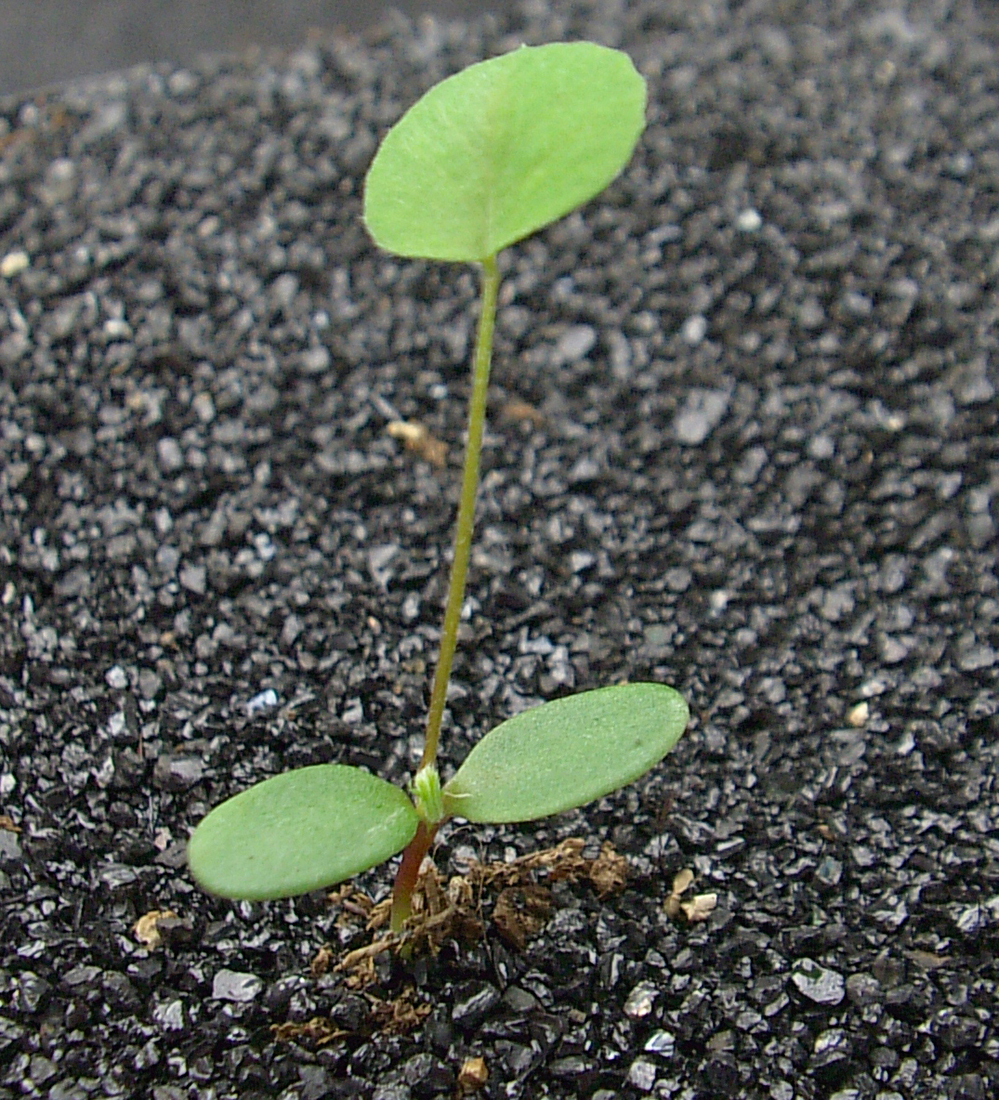
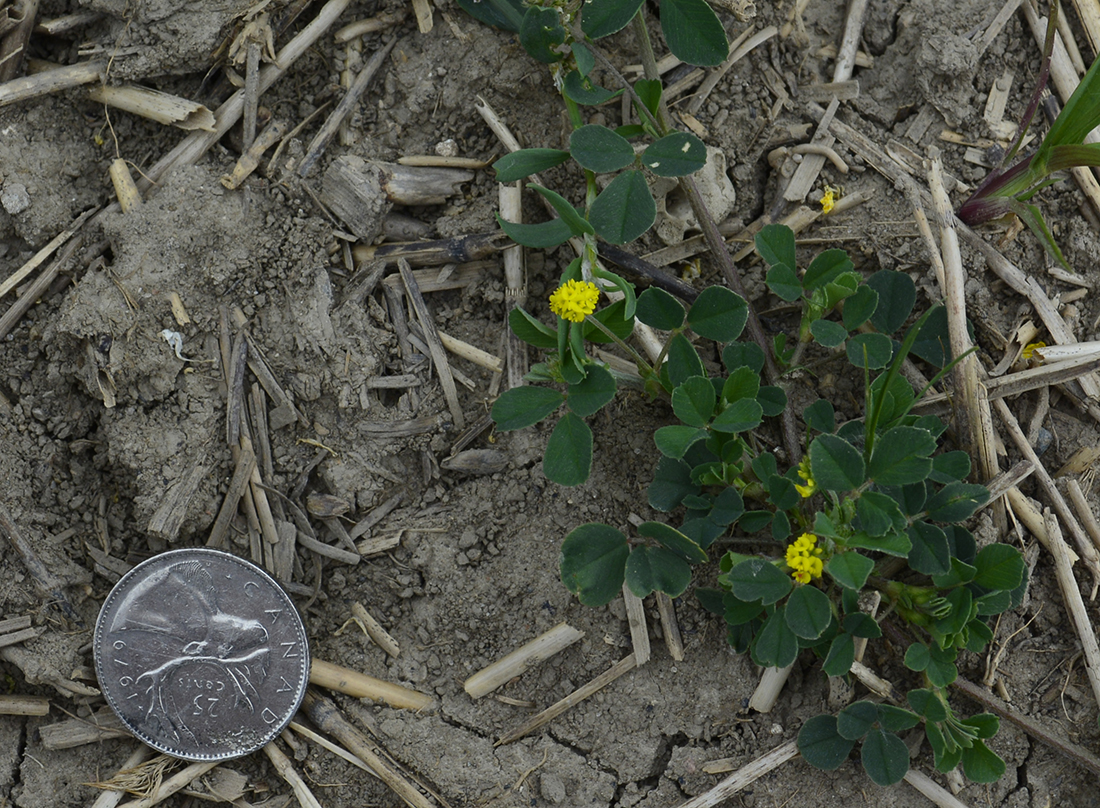
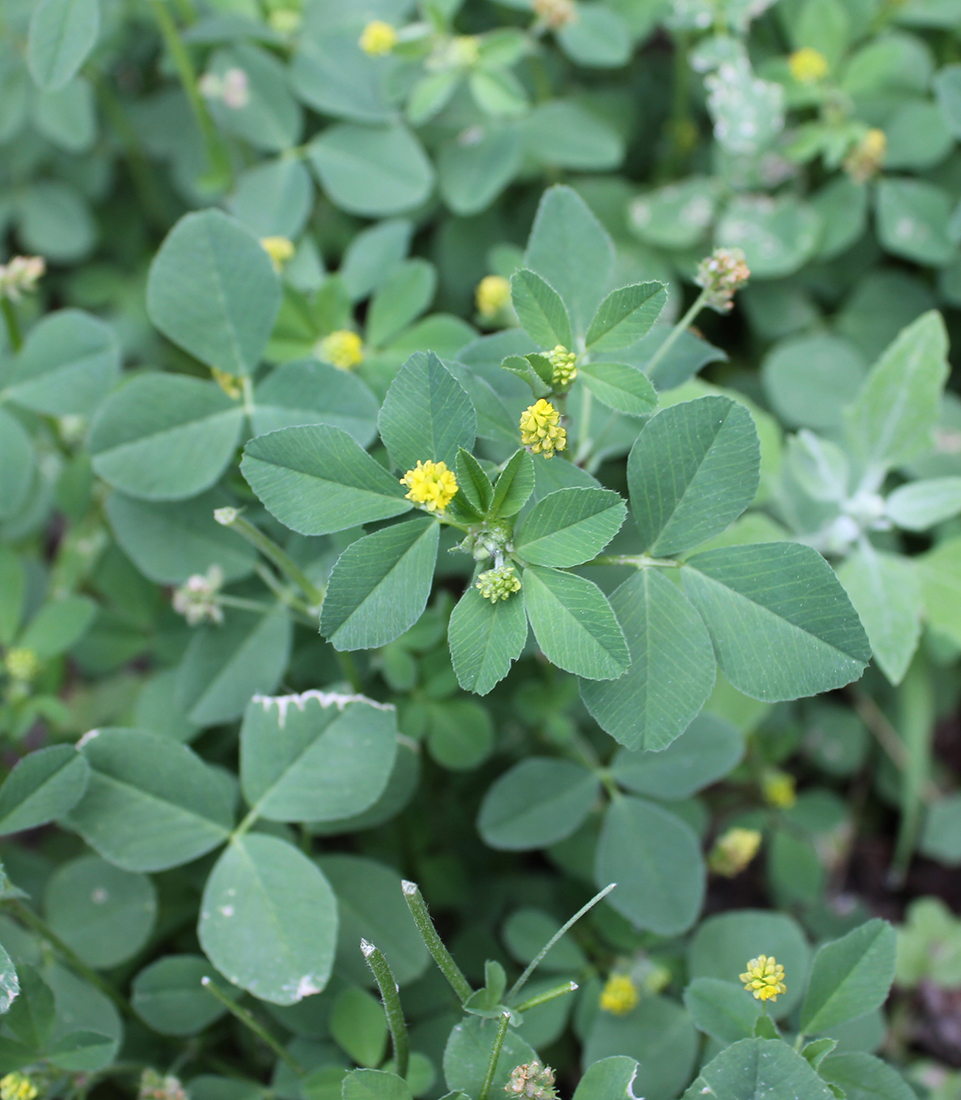
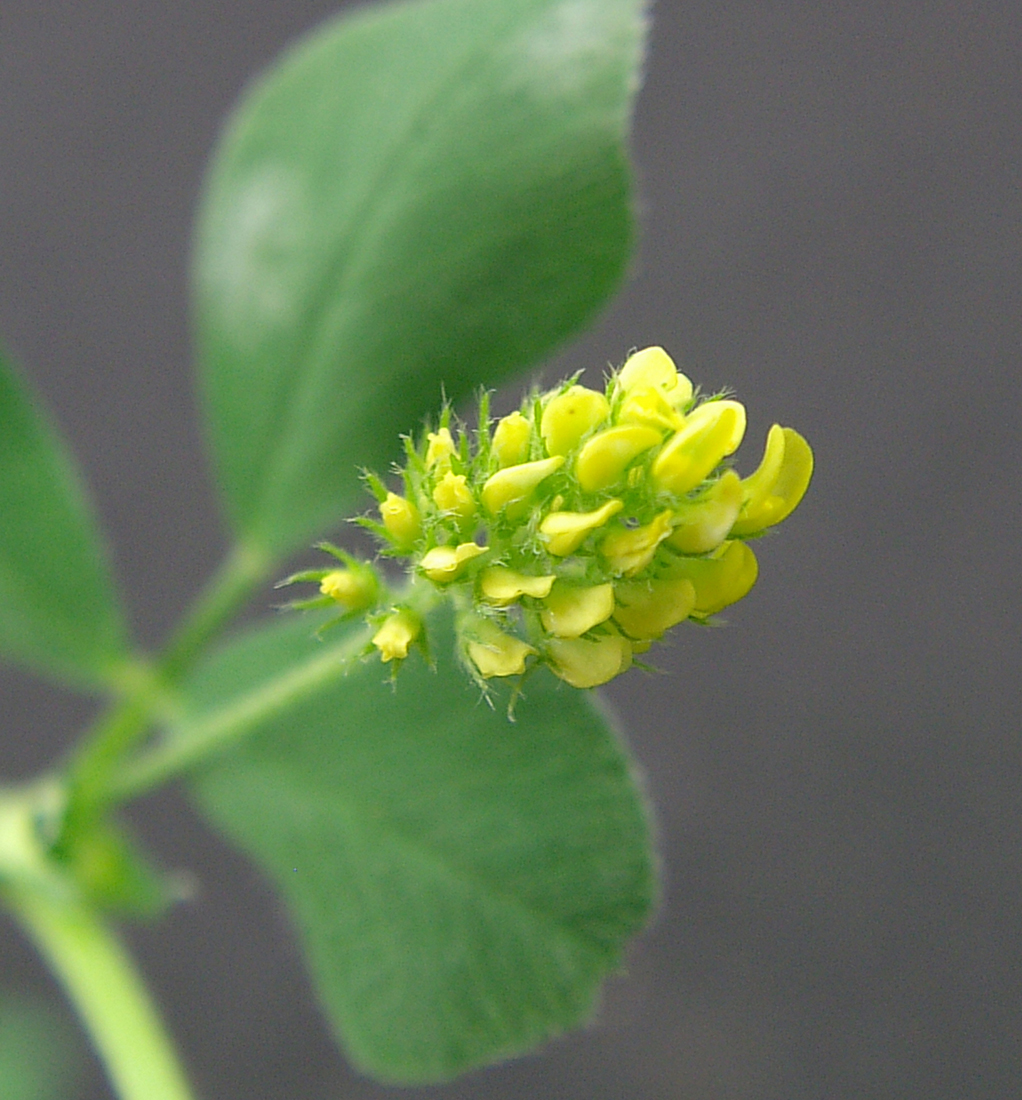
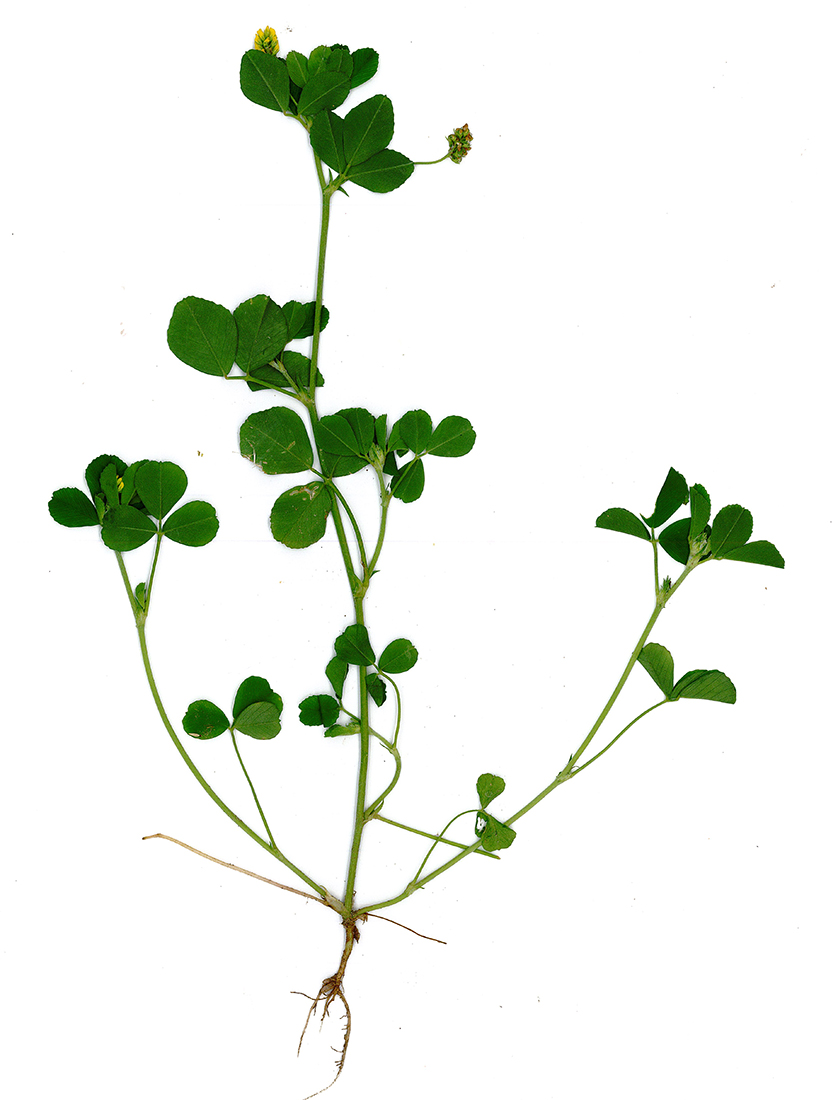
Updated: January 13, 2023
Published: January 13, 2023